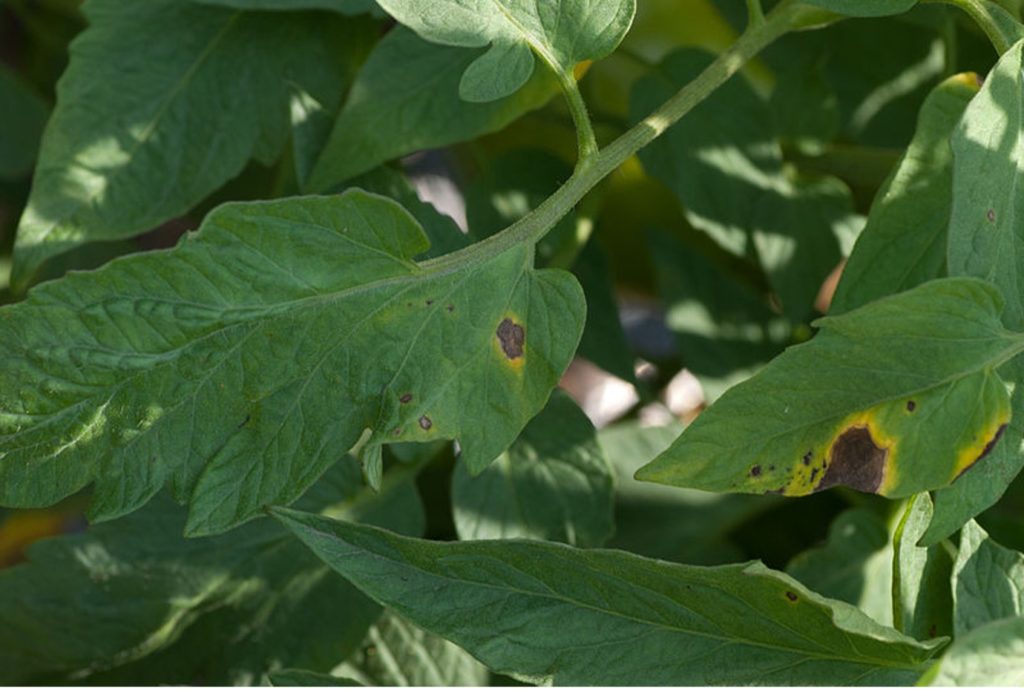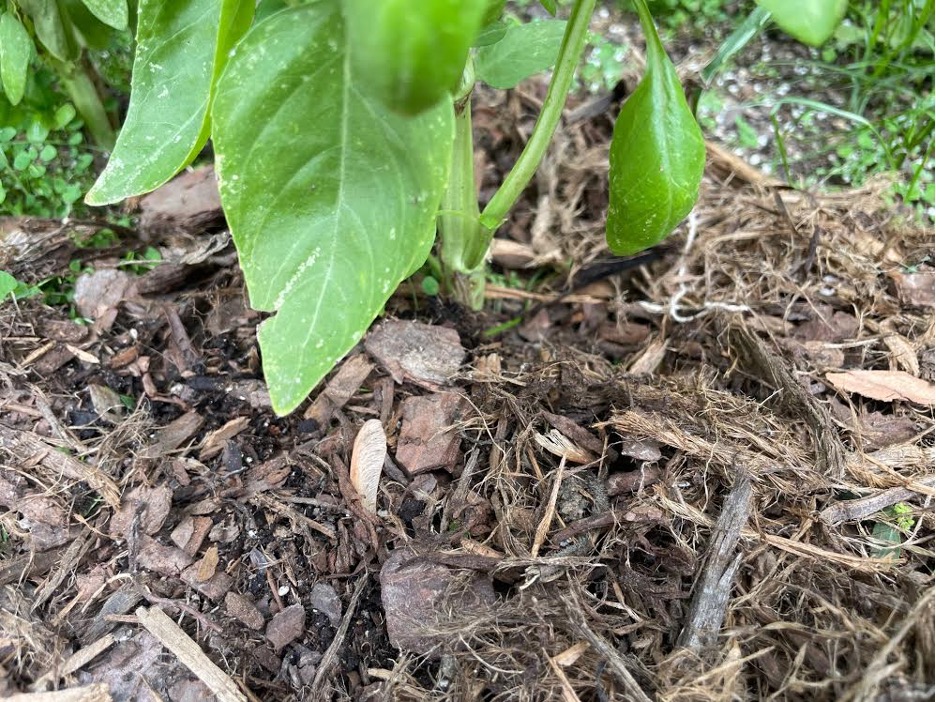-Mike Weeks-

We are entering the time of the growing season where it becomes especially important to protect your outdoor plants from all sorts of incoming pressure from insects, bacteria, and fungi. The moisture and heat of summer create perfect conditions for these pathogens to grab hold of your plants if left unchecked. This post will focus on organic fungicides, specifically the living, bacteria-based ones, that can help you keep your garden healthy and productive.
For many years we, along with tons of other garden centers, sold a product called Serenade. It was our “go to” for managing the outdoor garden and creating a regimen to prevent diseases such as early blight (Alternaria), along with many others. You may have noticed that it disappeared from the shelves. Simply put, the manufacturer stopped producing the quarts of concentrate as well as the ready to use formula. They still produce the large containers for farmers, but that would be way too large for most hobbyists that we work with. Bummer.

So Serenade is gone, but don’t fear! There’s been tons of research over the years to find specific bacterial strains that are effective in fighting off common pathogenic plant infections (there’s a lot). One that comes to mind is Bacillus amyloliquefaciens. This is what makes up our Monterey Complete Disease Control product, and it is very effective at preventing many common foliar and root-borne pathogens. This product is great for both soil and foliar applications and is far more cost effective than Serenade, as the suggested dose is 1 teaspoon per gallon, rather than 1 to 4 ounces!
The bacteria in the Monterey Complete release compounds that fight off infections when it senses them present. For best results in fighting foliar infections, we suggest rotating the Monterey product with a Copper Fungicide week to week. The Monterey will set up a nice blanket of good bacteria, and the copper will then wipe out anything that might make it through that blanket. This rotation will be a good way to help your plants stay healthy for as long as possible through the growing season.
Bacillus amyloliquefaciens isn’t just good for disease suppression; it also works to enhance plant growth. The bacteria feed on larger molecules that will then turn into smaller forms that the plants can uptake. These will include soluble forms of phosphorus, which is essential for plants and especially good for root and flower production. It will also naturally release natural plant growth hormones such as auxins, cytokinins, and gibberellins.
Another good tip to prevent pathogen problems in your plants is to remove affected leaves and stems with a clean pair of pruners. Removing lower leaves will reduce the risk of pathogens being splashed onto the plant from hard rains and will also increase air flow through the plant canopy. Clean your cutting tool with alcohol as you move from plant to plant to reduce the spread of diseases – you don’t want to be the thing introducing pathogens to your plants!

Lastly, keep the plants mulched with something like a hardwood mulch. Mulching prevents soil-borne pathogens from splashing up onto plants during rain or your own watering. Mulching also helps prevent surface evaporation, lowering drought stress on your plants – stress that can weaken your plants’ ability to fight off pathogens.
As always, we are happy to answer any questions you may have about how to keep your garden growing strong through the summer so you can enjoy a fruitful (literally) harvest!

Lisa Cooke says
Thanks for the sharing Veggie Gardening grass tips i use these tips in my garden
Henry Marks says
Nice research. It’s quite impressive!
Pulkit Nagar says
it’s informative post … about bacteria based fungicides. Thanks for sharing